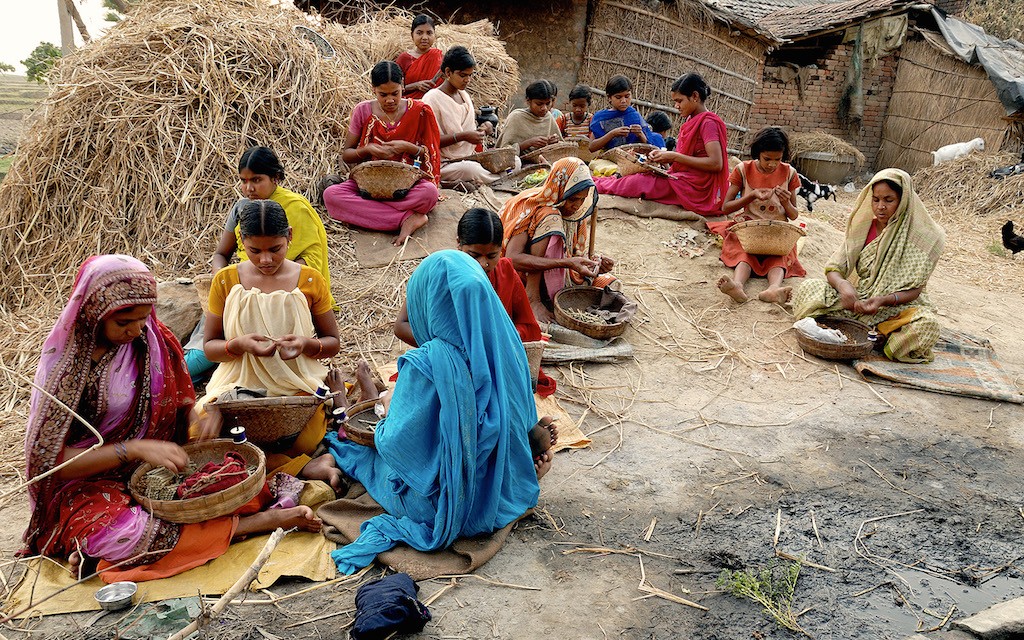
Several women and children engaged in making bidis. Photo: © Samrat35 | Dreamstime.com
According to an article in the Hindustan Times, the government plans to relax restrictions against child labour in order to protect the “social fabric” of the country. As expected, the proposals have been met with skepticism by child rights activists, who warn that the move towards allowing children below the age of 14 to work would be a hindrance to goal of educating all children below 14. For its part the government says that youngsters will be allowed to work in certain family businesses so long as this work does not disrupt their education.
The proposed amendment, the Child Labour (Prohibition and Regulation) Bill, 2012, a version of which was introduced but not passed into law by the previous government, would create an exemption for employing children if they are helping their family in fields, forests and home-based work after school hours or during vacations. Moreover, children between 14 and 18 years will not be allowed to work in hazardous industries. Family businesses can include a huge variety of industries, including, for example, one that has been in the news recently. It is well documented that bidi-making is primarily a family industry employing a great number of children who suffer adverse health and economic effects.
In justification of the decision, an unnamed government official was quoted saying, “We don’t want to redraw the social fabric of Indian society where children learn by participating in work with family elders. We, instead, want to encourage learning work at home as it leads to entrepreneurship.” Another reason given was that it would help poor families who may need the contribution from their children in order to survive.
However, not everyone thinks this is a good idea as these changes could create loopholes to deny children their rights. For example, female children, who already have a school drop-out rate twice that of males, may be forced to drop out from school in greater numbers if laws are not in place to stop them from working. The government’s move comes at the same time as a call by a UNESCO official for more child protections in Indian law.
Though there has been a huge decline in the reported number of child labourers in the last 10 years, activists say that these numbers do not portray the real state of affairs, with officials under-reporting cases in order to avoid questioning. It is believed that many more children are still employed illegally, made to work long hours and paid measly sums in several industries, including bidi-making, fireworks, footwear and carpets.
Do you agree that children need to work to support families? Leave a comment below. Please like FamiLife’s page on Facebook so that you get all our articles and others may find us.
This article has been re-edited for structure and additional details since it was originally published.
